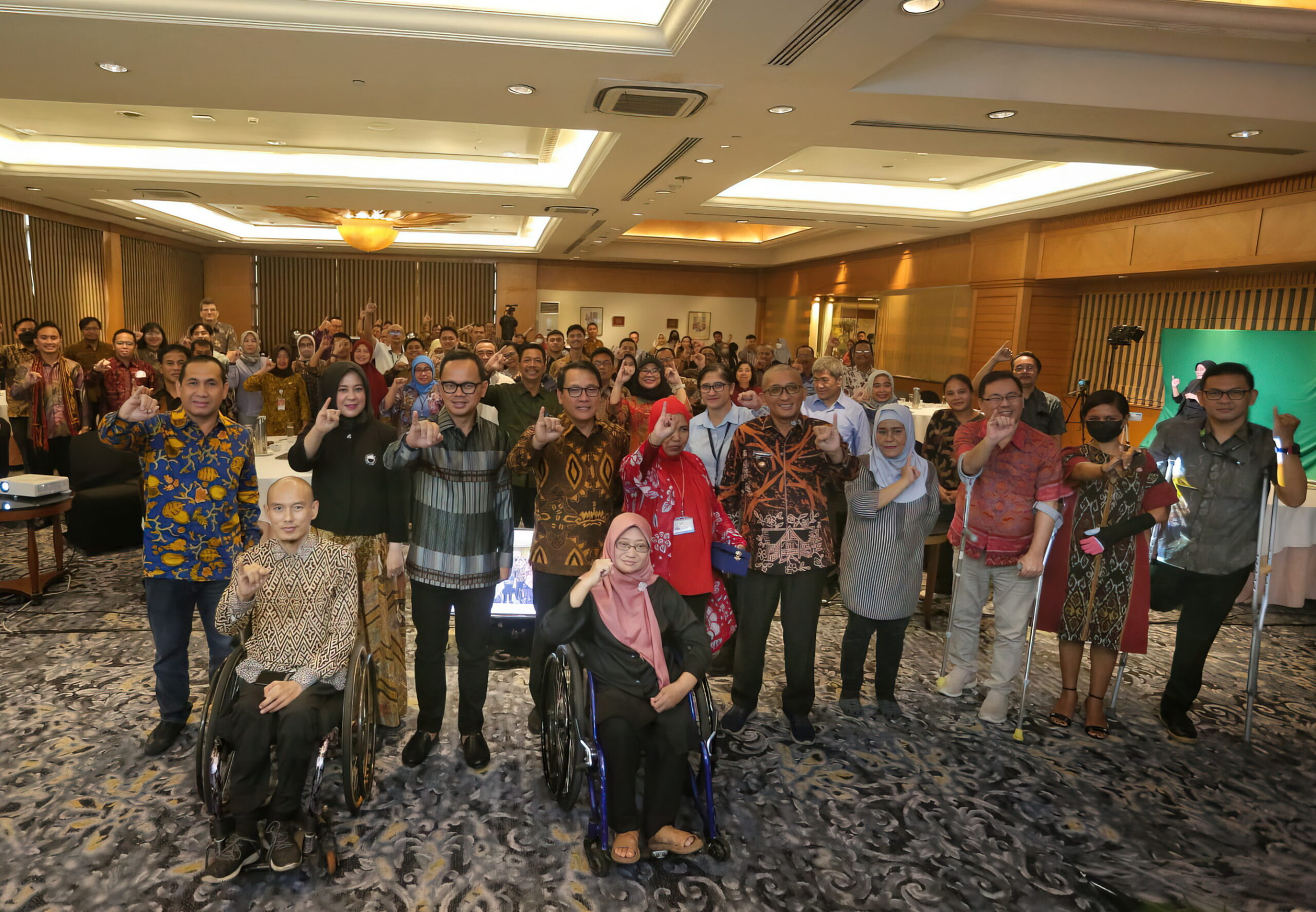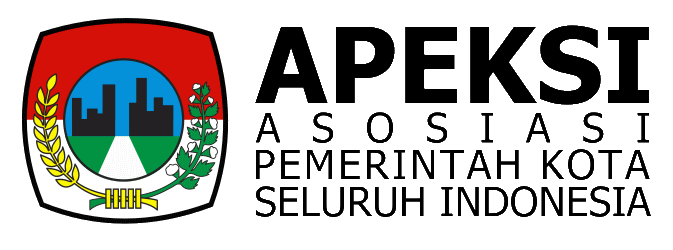
Jakarta, 23 February 2023 — The Association of Indonesian Municipalities (APEKSI) in collaboration with Deutsche Gesellschaft für Internationale Zusammenarbeit (GIZ) (the German Government’s international cooperation agency for sustainable development), held a National Seminar on Mainstreaming Inclusive Job Centers for City Governments on February 23, 2023 in a hybrid manner at the Zoom Meeting & Hotel Aryaduta Jakarta.
The Inclusive Job Center (IJC) developed by Employment BPJS in collaboration with the Social Protection Program implemented by GIZ (GIZ SPP) is an innovation based on sustainable development where empowering persons with disabilities according to their abilities is a fundamental basis. IJC was built using a twin-track approach, where persons with disabilities who are looking for work and companies that will employ persons with disabilities are brought together. IJC is a bridge in building an inclusive labor market or Inclusive Labor Market (ILM) in Indonesia, namely a job market that encourages space for empowerment and improving the quality of life for everyone, open and accessible to everyone, including persons with disabilities.
In accordance with Government Regulation no. 60/2020 concerning the Disability Service Unit (ULD) in the Employment Sector mandates local governments to establish ULDs and provide quality services for persons with disabilities to access jobs. Therefore, the interesting concept of IJC must be disseminated and socialized to city governments, because through IJC improving the quality of job seekers with disabilities can be carried out in an integrated and comprehensive manner, as well as assisting local governments who have an important role in ensuring the availability of services for persons with disabilities, especially to obtain rights for work equal to non-disabled. Therefore, the concept of Inclusive Job Center (IJC) d is very relevant to assist local governments in developing the role of the Disability Service Unit in the Employment sector.
In view of the important role of local governments in providing services to persons with disabilities in order to obtain equal employment rights, Apeksi is working with GIZ to conduct the Mainstreaming of Inclusive Job Centers (IJC) for City Governments.
The mainstreaming program, which targets city governments, especially members of the Working Group (Pokja) Towards Inclusive Apeksi Cities, has been implemented from December 2022 to the end of February 2023, consisting of assessments/surveys, Kick Off Meetings, compiling guides (handbooks), infographics and videos that are still in the process of being finalized, training held in 4 cities for 28 cities of the Working Group and radio talk shows.
The national seminar itself is one of the stages in efforts to mainstream IJC as a bridge in building the Inclusive Labor Market (ILM). Through national seminars, various policies and activities that have been developed in the mainstreaming effort, including the results of discussions, directed discussions with representatives of the city government, organizations of persons with disabilities, ministries and other stakeholders, are communicated to the central government and city governments that are members of APEKSI. The seminar which was attended by approximately 100 people attended in person and 85 attended virtually, presenting various parties with an interest in building inclusive employment, starting from the central government, city governments, BUMN, disabled people’s organizations, non-profit organizations to the private sector. The mainstreaming program itself will end in a consolidating Working Group forum which will develop concrete action plans and implement them in their respective cities and Apeksi will be carried out on a national scale in an effort to realize inclusive employment in each region.
In his remarks, Bima Arya Sugiarto as Chairman of the Apeksi Management Board and Mayor of Bogor said that “IJC is a good platform which is not enough in terms of commitment but must be detailed in terms of the number of workers that must be accommodated, the number that can be accommodated in the economic sector which must be allocated in the APBD so that this platform can be sustainable”.
Cut Sri Rozanna, Director of the GIZ Social Protection Program said that “The Inclusive Job Center (IJC) was built with the concept of empowerment. We will build an inclusive employment ecosystem, which is not just a one-day job fair, or information on job vacancies, or an application for job seekers, but is a medium that will bring together persons with disabilities with employers, namely industry and city government. IJC is building an ecosystem from upstream to downstream, where IJC is in a central position to increase human resources. IJC will make it easier for employers to work and develop potential new skills according to industry needs and the type of disability they have. IJC encourages collaboration, not competition, requires the cooperation of all parties, all sectors, so that persons with disabilities can have decent jobs and their rights as workers (decent work) are protected.”
The Director of Manpower of Bappenas, Mahatmi Parwitasari Saronto said that “In realizing the formation of the IJC, collaboration and cooperation with various parties is needed to be able to jointly carry out the implementation of the IJC. Such collaboration is needed in resolving issues of needs for workers with disabilities such as industrial relations in finding jobs with disabilities with jobs that match their skills, mapping potential, building integration systems to match supply and demand, and creating a work environment without barriers.”
Edy Supriyanto, Chairperson of SEHATI Sukoharjo reminded the importance of ensuring the involvement of persons with disabilities and their organizations in various development processes including planning to build an inclusive workforce. “If the city government wants to recruit employees in BUMD, make sure there are 2% of them with disabilities. Then training at the BLK ensures that there are disabilities and the agencies collaborate with each other for the latest data.”
Aria Indrawati from the Mitra Netra Foundation said that to prepare blind persons with disabilities to be ready for work through quality education so that they are competent to enter the job market and diversify job opportunities or diversify job opportunities because blind persons with disabilities are synonymous with the stigma of being a masseuse or musician/singer, even though their interests or the skills can vary and are the same as non-disabled people such as telephone operators or content creators.
Wahdi, Chairperson of the Pokja Towards APEKSI’s Inclusive Cities who is also Mayor of Metro closed the seminar by emphasizing that the Working Group would develop action plans in cities including Apeksi’s national agenda in building inclusive employment as an effort to build inclusive cities in Indonesia.
